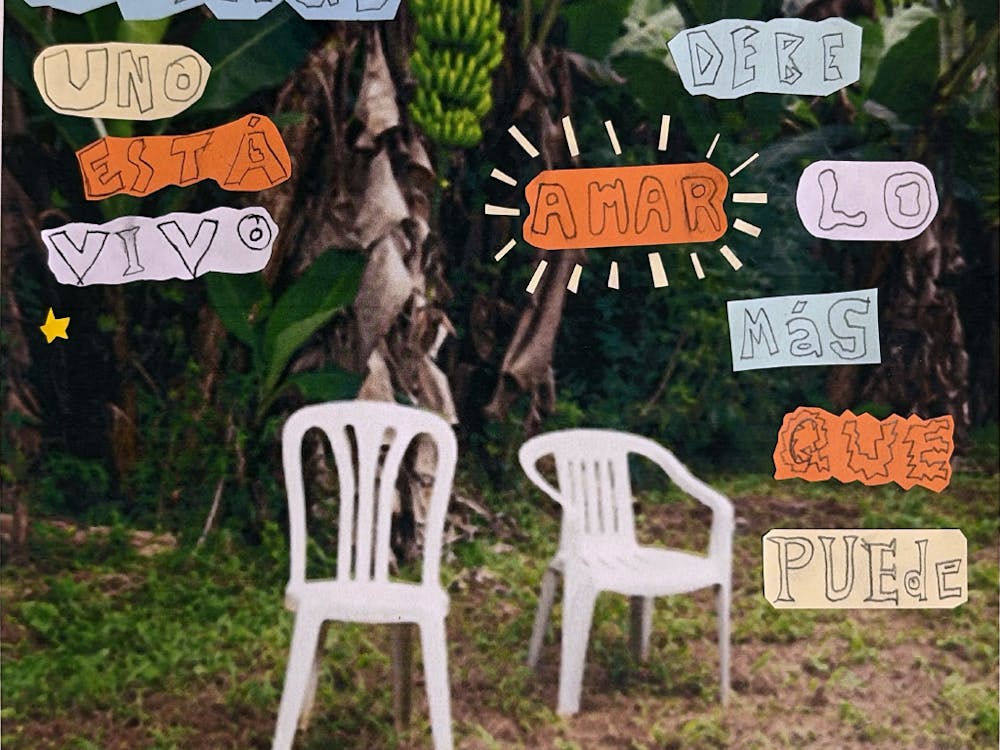by Ezequiel Delgado-Cervantes |
“You don't belong here,” I said silently to myself. I was sitting in a small evangelical church in Granada, Spain a few weeks ago when this thought popped in my head. I was nervous because it was my first time attending a church service entirely in Spanish, in a city I just arrived in and with people I'd never met before. It surprised me. Not because I felt unwelcome (on the contrary, the people were more than courteous) nor because the thought itself appeared (I’ve said this to myself many times before), but because of how I responded.
Instead of panicking, sweating profusely and feeling my heart race at a million miles per hour, I felt fine. I knew I was experiencing culture shock and that I was going through a learning experience, and it wasn't that the church or the people rejected me but my personal fears of not belonging, of not being accepted, that tried to hijack my emotions. Thankfully that didn't happen. I believe that having a sense of belonging in their community has a huge impact on a person's mental health and I want to share my story in how I've dealt with that issue.
Let me tell you where I'm coming from. Growing up I was awkward, plain and simple. I was that weird kid who said the bizarre things in class, who was picked last for gym teams, who didn't have many friends, who wore the same clothes all the time and who was the teacher's pet. My family was the exact opposite of a happy, white picket fence, middle-class family.
We relied on government assistance to scrape by. My parents were divorced, individually dealing with alcoholism, being undocumented, and under the pressure to raise four children in their early 20s by relying on unstable minimum wage and under-the-table jobs. I could go on, but my point isn't to just share the rather unpleasant experiences I've had to live through. I'm saying I know what it feels like to be on the outside, to feel like a loner, to feel like nobody wants you, to feel like there's not much to look forward to in life.
I've made mistakes when trying to deal with these feelings of rejection, isolation and inadequacy by indulging in unhealthy behaviors such as binge-drinking, stress-eating and impulsive spending, which affected my relationships with friends and family. None of them filled the void and depression I often felt on a daily basis, and they usually made things worse.
I still struggle with feeling isolated and rejected even here at UP. Sometimes I wish I could have had a different childhood or just be a completely different person altogether. It’s hard to be gay and Christian and still be unsure of how to reconcile those different worlds. It's hard to be paying my way through college, to be a first-generation student, to be a minority on a mostly white campus and to deal with each of those unique challenges.
However, I have come a long way and I'm so thankful for all the support and mentorship I've received these last three years. Last spring semester I met with a counselor from the Health Center on a regular basis to come to terms with a lot of the issues I've ignored and buried over the years. I also started to open up more to my friends when things were difficult and be honest with how I was feeling. I've learned how to be a patient, empathetic person through these ordeals. I've accepted that they've happened and that's made me a stronger person. I’m not trying to say that I'm perfect and that I have the five-step-plan-to-feeling-better for you. I'm here to tell you that you are not alone.
I know it can feel hard to feel trapped and to feel that you don't belong here, whether because you don't feel think your friends like you, or classes are too difficult, or your family is experiencing personal problems or any other trouble you can think of. But I'm here to tell you that you aren't alone in your struggles. If you're feeling alone or overwhelmed or that you don't belong, reach out to your friends, family and the great resources we have on campus. Likewise, if you know of a friend who is going through a tough time reach out to them and let them know you care. I know it made a difference for me.
We all struggle. Let's struggle together.
Ezequiel Delgado-Cervantes is a senior communications major and can be reached at delgado16@up.edu. Ezequiel is a member of Active Minds, a group on campus dedicated to educating our community about mental health and demonstrating that people are not alone in their mental health struggles.
Active Minds Podcast
[audio mp3="http://www.upbeacon.com/wp-content/uploads/2015/10/Ezequiel-Lets-Talk-Correct-Length-mp3.mp3"][/audio]
Mental Health Resources:
UP Health and Counseling Center: 503-943-7134
Multnomah Mental Health Crisis Line: 503-988-4888
Active Minds: activemindsup@gmail.com or facebook.com/activemindsatup







